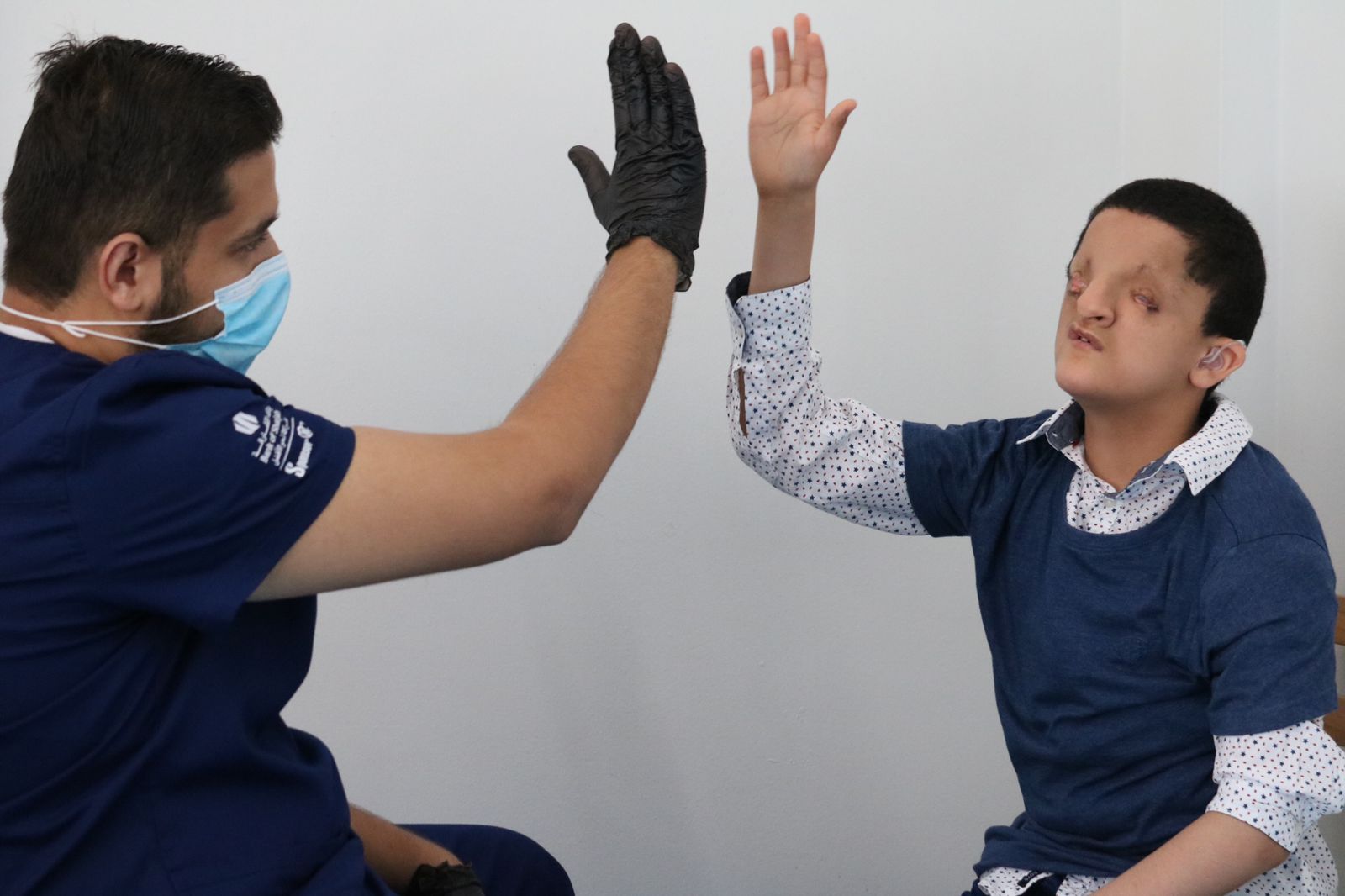Department for people with visual impairments was established in 1993 within the Early Intervention Center, as a department that works to provide specialized services for people with visual disabilities [sightedness, low vision or visual impairment associated with another disability], in order to empower people with visual disabilities, and promote their inclusion in Educational institutions in particular and society in general. It is possible to provide visual impairment programs in various centers and schools of SCHS.
The center receives all age groups from newborns to the elderly.
Services are provided to beneficiaries::
- Visual impairment (blind and low vision)
- Visual impairment associated with another disability.
The most important basic services provided:
- screening for visual problems.
- Evaluation
- Training sessions (special sessions for children [individual training, sessions for families)
- Follow-up of integrated students with visual impairments
- AEPS | Assessments, evaluation and programming system for children.
- VIISA | Vision Impaired In-Service in America.
- Other programs may be used, depending on individual needs.
The measurement, evaluation and programming system for children under the age of six is used as a basic curriculum in addition to the following curricula:
Mechanism of registration
The registration process is carried out in the center by an arranged mechanism.
- In the beginning, the initial registration process is done by phone or by visiting the center in coordination with the receptionist or social service employee.
- After that, the center contacts the family, schedules an appointment for the initial survey, and brings the medical report and identification papers.
- Then the family is contacted for the second time for official registration and interviews with specialists for evaluation according to the child's need.
- After that, the center contacts the family to hand over the child’s report after completing the comprehensive assessment process, and they are informed of the services that will be provided to the child (family counseling, classes, communication, physical therapy), taking into account the date of the child’s registration and waiting lists.



